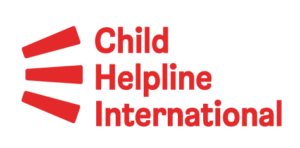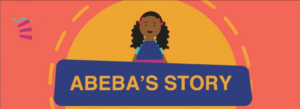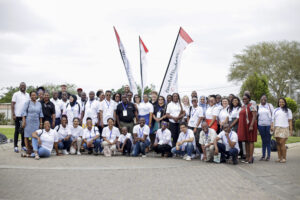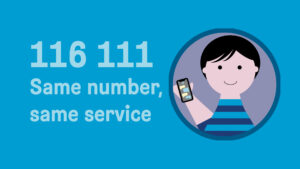The Gaborone Declaration was announced at the close of the Regional Consultation of Child Helplines in Africa, held in Gaborone, Botswana, on 28-30 November 2023.
The Gaborone Declaration is the statement made on behalf of all members of Child Helpline International in the Africa Region, and is signed by Patrick Krens, our Executive Director; Florence Chileshe-Nkhuwa, the Regional Representative for Africa; and by Olebile Machete, the Executive Secretary of Childline Botswana, which hosted the Regional Consultation.
GABORONE DECLARATION
on the Role of Child Helplines in the
Protection of Children in Africa
WE, the Participants of the Regional Consultation of Child Helplines in Africa, held in Gaborone, Botswana, on 28-30 November 2023 under the theme “All on Board Towards a World Fit for Children; Leveraging on Child Helplines in Africa”;
REAFFIRMING the UN Convention of the Rights of the Child;
REAFFIRMING the African Charter on the Rights and Welfare of the Child;
ACKNOWLEDGING that 196 countries have ratified the UN Convention on the Rights of the Child, including all countries in Africa;
ACKNOWLEDGING that 51 countries have ratified the African Charter on the Rights and Welfare of the Child;
RECOGNIZING relevant UN Instruments and Decisions related to the protection of children, in particular Child Marriage, Female Genital Mutilation/Cutting and Online Child Sexual Exploitation and Abuse;
RECALLING that Child Helpline International, an international collective impact organization that brings together 156 child helplines in 133 countries around the world, believes that every child has the right to be heard, to receive information, and to be protected against violence, abuse, exploitation and harmful practices;
FURTHER RECALLING the commitment of Child Helpline International, child helplines and partner organizations attending the Regional Consultation to leave no one behind;
CONSIDERING that child helplines in Africa are recognized as crucial tools for protecting children from violence, abuse, exploitation and harmful practices, and that they are often the first point of support for children in the child protection system;
HEREBY:
COMMIT ourselves to:
- Strengthen Pan-African child helpline data collection and analysis;
- Improve safety and welfare of child helpline staff;
- Respond to the needs and contexts of children with pronounced vulnerabilities, such as survivors of violence, abuse, exploitation and abuse, refugee children, those living with HIV; children with disabilities and LGBT children; and
- Heed the call of children to raise awareness about the harmonized 116 number and reporting channels by:
- Raising public education about child helplines;
- Using billboards and posters to share information;
- Increasing education in schools, including pre-schools;
- Engaging different stakeholders, such as churches, schools, families and Sunday soccer events;
- Organizing tour visits to appreciate child helplines;
- Campaigning frequently in rural areas;
- Identifying trusted elders in the community and training them on handling children’s issues, so that children can approach them when they have problems;
- Establishing public phones for children to use for reporting, for those children who do not otherwise have access to personal phones; and
- Increasing the availability of youth representatives in offices of child-friendly services, so that children may feel comfortable.
SUGGEST to the UN CRC Committee and African Committee of Experts on the Rights and Welfare of the Committee that it:
- Monitors the status of the implementation of Articles 12, 19, 32 and 34 of the UNCRC and Articles 7, 16, 21 and 27 of the Charter, respectively, when examining State party reports and issue recommendations for implementation regarding the promotion, safeguarding and protection of children’s rights; and
- Recommends to State parties the creation, scaling up and strengthening of existing child helplines and to allocate appropriate resources for their operations.
URGE the African Union to adopt the Memorandum of Understanding with Child Helpline International to implement agreed areas of collaboration, and develop relevant action plans to:
- Undertake of a more detailed mapping exercise of the status of child helplines in Africa and to better understand where and how child helplines can be developed and strengthened;
- Work with partners and organizations and reserve a pan-African national number 116 for a harmonized number for child helplines in Africa;
- Create of a “same number – same service” that will ensure the child helpline service in all Members States is always associated with the 116 number. It is essential that this number also be a toll-free number to avoid child helplines having to fund the expense of incoming calls;
- Mobilize governments to further support the strengthening of child helplines in Africa and develop child helplines in countries and territories where they do not yet exist; and
- Expand of the conversation to include the African Union’s partners and agencies and committees, such as the International Telecommunications Union and the African Committee of Experts on the Rights and Welfare of the Child, and create a continental platform for knowledge exchange, cooperation and discussion, with particular focus on harmful practices, linked to:
- AU Campaign to End Child Marriage;
- Saleema Initiative to End FGM;
- Combatting Online Child Sexual Exploitation.
URGE governments in Africa and all States Parties of the UNCRC and ACRWEC respectively to:
- Adopt and/or amend laws and policies that ensure universal, free and unrestricted access to child helplines across the African continent through the harmonized 116 number;
- Establish and/or strengthen and make known and accessible to children, caregivers and other stakeholders, reporting mechanisms on State Parties’ protection of children’s rights;
- Create awareness on the role of child helplines as an important tool to address the protection of children against violence, abuse, exploitation (including online sexual exploitation and abuse) and harmful practices; and
- Allocate sufficient resources for the creation and operations of child helplines in their respective countries.
CALL UPON Civil Society Organizations and partners to:
- Consider the UNCRC and other relevant frameworks and put in place technical solutions including call and database solutions link to child helplines, and work to protect the rights of children, including in cyberspace;
- Sign up to the Universal Declaration as outlined by the UNESCO/ITU led Broadband Commission; and
- Support governments to create, scale up/strengthen and sustain the use of child helplines at the national level.
ADOPTED in Gaborone, Botswana on 30 November 2023.
Patrick Krens, Executive Director, Child Helpline International
Florence Nkhuwa, Africa Regional Representative, Child Helpline International
Olebile Machete, Executive Secretary, Childline Botswana




